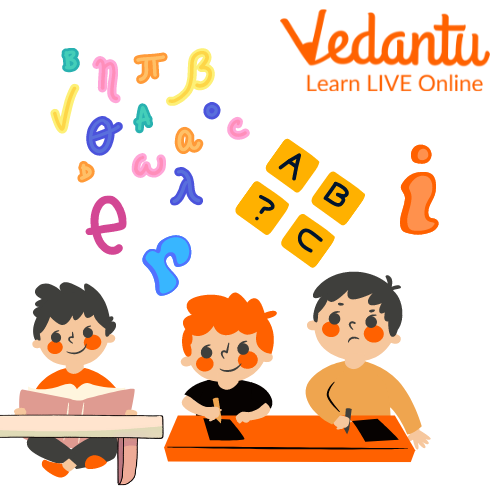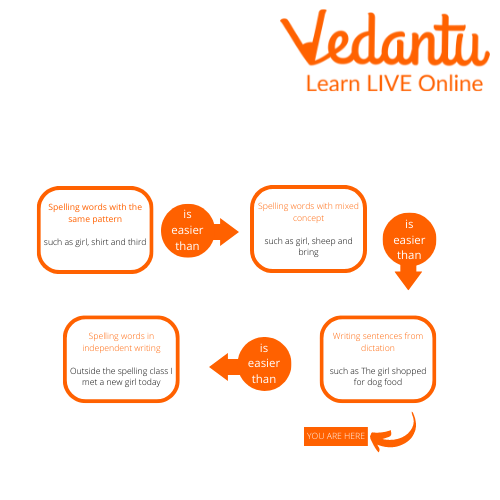




How Dictation Words Improve Kids’ Writing Skills
Numerous words are necessary for kids to learn to cope with their studies through different stages of studies. One should learn every new word they find and apply it in their life or study as much as they can.
The best way to teach any kid a new word is by making them learn about the meaning of that word, where they can apply that word, and how to use it. Moving forward, to make sure that a kid remembers that word is through dictation.

Dictation Words for Kids
Giving and using dictation words can help anyone to remember a new word very soon. This process makes sure you remember the word’s correct spelling and meaning throughout your entire lifetime. In this article, we are going to learn about the important easy words for kids.
Why is Taking Dictation Necessary?
The main help dictation words provide is to help children learn important easy words to remember and learn their usage, making them enrich their vocabulary. These days maintaining a rich vocabulary for kids has become necessary.

Process of Learning New Words for Kids
Moreover, taking dictation words helps in building up a strong memory for kids which later in higher grades helps a lot to remember answers to different questions. Dictation helps in maintaining a psychological challenge and well-being.
Therefore, below are the dictation words for kids according to the needs of different grades which are necessary to remember and can be learned through dictation.
Some Important Dictation Words
Dictation Words for Grade 1
There are several dictation words that children from a young age should start remembering since their first class which even come to use further during their studies in higher grades. Below is the list of mandatory dictation words for kids of grade 1.
All
And
Mom
Good
Had
Before
After
Man
Look
Like
Run
Home
Play
Pig
Pet
Ten
Stop
Sun
Moon
This
Toy
Ride
Hide
Was
Into
Hot
Here
Become
because
The dictation words for kids in grade 1 can be different colours, the spelling of numbers they are learning and the spelling of animals the kids might have learned. Such spelling for kids can be used during dictation.
Dictation Words for Grade 2
The words that grade 2 students should learn should be advanced from the grade 1 spelling for kids. Through such methods, it will be easy and quick for the kid to learn and remember a new word.
About
After
Apple
Ate
Ask
Before
Between
Baby
Back
Being
Cute
Cutter
Cape
Circle
Cake
Coming
Dear
Deer
Door
Drive
Duck
Eat
Egg
Eagle
From
Force
Farm
Fast
Father
Food
Goose
Great
Give
Gold
Grass
Hive
Hen
Hammer
Igloo
Ice cream
Jump
Jog
Kite
Kid
Kangaroo
Lion
Lame
Last
Money
Monkey
Nest
Night
Open
Quick
Rest
Road
Study
Dictation Words for Grade 3
Important easy words to remember for grade 3 are a bit advanced and hence kids should do proper practice to ace these dictation words and remember them thoroughly.
Afternoon
Able
Amazing
Boring
Bathroom
Basket
Bedroom
Because
Birthday
Child
Care
Cage
Clothes
Corner
Dart
Dance
Dream
Deal
Elephant
Everyone
Elevate
Fright
Furious
Five
Fiver
Forgot
Games
Garden
Glow
Gem
High
Hour
Half
Hive
Inglot
Joker
Jumper
Knife
Lower
Monastery
Talking
Teaching
Teacher
Rival
Remember
Reform
Along with such words, the daily usage of the words should increase, ultimately making their vocabulary enriched throughout the learning.
Dictation Words for Grade 4
The dictation words for grade 4 comprise some crucial spellings which might take time to learn and remember. But with proper practice, it is not impossible to use such words in their daily life and become masters of English words.
Across
Archery
Await
Boardroom
Bottom
Baskets
Captain
Common
Distinction
District
Evergreen
Loom
Lonely
Grieve
Helpful
Horrid
Mountain
Mortifying
Movie
Reason
Survive
Sunshine
Dictation Words for Grade 5
Successfully clearing upgrade 5 should not be a big task if a kid is willing to learn and has been enjoying giving dictations. Hence, here are the words to take up a notch for important words for kids.
Although
America
Armenian
Attention
Countries
Cousin
Different
Daunting
Cross
Decide
Foul
Fringe
Ghastly
Grieving
Interstellar
Interesting
Horrifying
Invisible
Inevitable
Joking
Lovingly
Principal
President
Property
Quiver
Resort
Refreshing
Tavern
University
Xylophone
Zeal
With this, the kids must have gotten accustomed to practising different words, and learning the spelling for kids must have become an easier task.
Summary
Using dictation words in everyday life makes it easier for kids to learn and use different words throughout their life. People can teach their kids new small words to learn and make them remember those words verbally and later test their memory by giving dictation to make sure if the kid retains the knowledge or not. Parents should take dictation of their kids using the important easy words given in this article. These are small words to learn which can help develop a great vocabulary for kids. We hope this article will helped you in learning about the dictation words for kids.
FAQs on Dictation Words for Kids: Learn Spelling & Vocabulary Easily
1. What is dictation and why is it important for a child's learning?
Dictation is a learning exercise where one person says words or sentences aloud, and another person writes them down. It is a powerful tool for children because it simultaneously develops several core skills. Its primary importance lies in improving spelling accuracy, but it also enhances listening comprehension, boosts concentration, and strengthens the connection between spoken sounds and written letters.
2. How can parents start with dictation exercises at home?
To start dictation at home, follow these simple steps:
Choose Appropriate Words: Start with simple, familiar words from their schoolbooks, storybooks, or our lists of basic words for kids.
Set a Routine: Dedicate a short, consistent time, like 10-15 minutes a few times a week.
Speak Clearly: Pronounce the word clearly and at a moderate pace. Repeat it if necessary.
Encourage and Review: After they write, review the words together. Focus on positive reinforcement for correct spellings and gently correct mistakes without discouraging them.
3. What kind of words are suitable for dictation for different age groups?
The complexity of dictation words should grow with the child. Here’s a general guide:
LKG/Nursery (Ages 3-4): Focus on simple two-letter and three-letter CVC (consonant-vowel-consonant) words like 'at', 'in', 'cat', 'dog', and 'sun'.
UKG (Ages 4-5): Introduce sight words and words with consonant blends. Examples include 'the', 'and', 'ball', 'frog', and 'tree'.
Class 1 (Ages 5-6): Move to four or five-letter words and simple sentences. Include words with digraphs (sh, ch, th) like 'ship', 'chin', 'this', and basic number spellings. The CBSE Class 1 syllabus often includes such vocabulary building.
Class 2-3 (Ages 6-8): Introduce more complex words with silent letters ('know'), compound words ('rainbow'), and longer sentences to test grammar and punctuation.
4. How can I make dictation a fun activity instead of a chore?
To make dictation enjoyable, turn it into a game. You can try:
Word Hunt: Ask your child to find and write down words they see around the house or in a picture book.
Mystery Word: Give clues about a word and have them guess and write it.
Rainbow Writing: Let them write each word with a different coloured pencil.
Team Up: Take turns giving each other dictation. This makes it a collaborative and fun activity.
5. Beyond spelling, what other skills does dictation improve?
While spelling is the most obvious benefit, regular dictation significantly enhances other crucial academic skills. It sharpens auditory processing as children must listen carefully to distinguish sounds. It builds focus and attention span, as they need to concentrate on the spoken word and the act of writing. Furthermore, when dictating sentences, it improves their understanding of grammar, punctuation, and sentence structure.
6. What is the main difference between a dictation exercise and a spelling test?
The primary difference lies in their purpose and process. A spelling test is typically an assessment tool to evaluate a child's ability to memorise and recall the spelling of a pre-defined list of words. In contrast, a dictation exercise is a formative learning process. It actively teaches the connection between phonics (sounds) and graphemes (letters) in real-time. Dictation focuses on the application of listening and writing skills together, not just rote memorisation.
7. Where can I find new words for my child's dictation practice?
Finding new words can be an everyday activity. Look for age-appropriate words in:
Storybooks: Pick a few new words from the book you read together.
Daily Surroundings: Use names of objects, fruits, and animals (e.g., 'table', 'apple', 'tiger').
School Textbooks: Words from their English, EVS, or Science chapters are directly relevant to their curriculum.
Conversations: If a new word comes up in conversation, use it as a 'word of the day' for dictation. Vedantu offers many themed word lists in its section on educational topics for kids.









